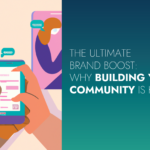In this blog post, we answer some of the most common content marketing-related questions. Get in touch if you’d like to know more.
What is content marketing?
In the words of marketing guru, Neil Patel, content marketing is a long-term strategy that focuses on building strong relationships with your target audience by consistently delivering high-quality, relevant content that educates and, ultimately, sells.
Instead of pitching your products or services, you are delivering information that makes your customers more informed before they decide to become a customer. And, if you deliver consistent, ongoing, valuable information to your customers, they ultimately reward you with their business and loyalty as you will be their natural, trusted choice.
Why is content marketing important?
Content marketing is important because it builds strong connections with your audience, driving engagement, loyalty, and revenue. It meets today’s complex customer journeys by providing valuable, relevant content across multiple touchpoints. 68% of consumers spend time on content from brands they’re interested in (HubSpot), and businesses using content marketing achieve six times more conversions (Content Marketing Institute).
It supports key business goals like increasing engagement, raising brand awareness, and driving traffic. By focusing on clear goals, tracking metrics, and understanding the customer journey, content marketing helps businesses connect with and convert their audience, enhancing the bottom line.

What is a content marketing strategy?
A content marketing strategy is a plan that outlines why you’re creating content, who you are creating it for, the answers and information you plan to provide your audience with, how you will be the best answer for them, how you will distribute your content, and how you monitor the performance and effectiveness of your content. It helps you to map out, monitor and use the content you already have as well as the new content you plan to create.
How do you measure content marketing ROI?
Measuring content marketing ROI involves several key steps. Start by setting clear objectives aligned with your business goals, such as increasing customer engagement, raising brand awareness, and driving website traffic. Choose relevant metrics like pages per visit, social sharing, and conversion rates to track progress. Include calls-to-action (CTAs) in your content to measure conversions and build a user journey map to understand customer touchpoints. Implement an attribution model to assign value to each touchpoint, providing a clearer picture of ROI. Focus on controllable and measurable elements, regularly tracking progress against benchmarks to make data-driven decisions and enhance your content marketing strategy.
How cost-effective is content marketing?
According to a study by Demand Metric, content marketing is highly cost-effective, costing 62% less than traditional marketing. Despite its lower cost, it generates significantly more leads and higher conversion rates. By focusing on creating valuable, relevant content, businesses can engage their audience across various touchpoints without the high expenses associated with traditional marketing methods. This efficiency makes content marketing an attractive option for maximizing return on investment while effectively building brand awareness and customer loyalty.
What can content marketing be used for?
Content marketing can be used to achieve a variety of business goals. Primarily, it attracts and engages a target audience by providing valuable, relevant content, which can enhance brand awareness and loyalty. It drives website traffic and improves SEO through high-quality content shared across various channels. Content marketing also boosts customer engagement and conversions, with businesses using it seeing six times more conversions compared to those that don’t. Furthermore, it’s a cost-effective strategy, costing 62% less than traditional marketing. Content marketing can nurture leads, build long-term customer relationships, and position a brand as a trusted authority in its industry. For example, 68% of consumers spend time consuming content from brands they are interested in, demonstrating its effectiveness in building interest and engagement.

How does content marketing work?
Content marketing works by creating and distributing valuable, relevant content to attract and engage a target audience. It involves understanding the audience, producing high-quality content that meets their needs, sharing it through various channels, encouraging interaction, and measuring impact. This approach is highly cost-effective, costing 62% less than traditional marketing according to a study by Demand Metric, while generating more leads and higher conversion rates. For instance, 68% of consumers spend time consuming content from brands they are interested in, and businesses using content marketing achieve six times more conversions. By focusing on resonant content, content marketing builds long-term relationships, enhances brand loyalty, and drives business growth.
What is a content marketing workshop?
A content marketing workshop is an interactive session carefully designed to help businesses and marketers develop effective content marketing strategies and plans. Our content marketing workshops at Zahra bring all key brand stakeholders together to tackle a series of bespoke exercises developed by the Zahra team. The outputs of these exercises are used to inform the content strategy we create for said brand.
If you’re launching a new product or service, need help engaging with your customers, or have another challenge you need help solving, content marketing could be the answer! Drop us a line at paula@zahramediagroup.com to find out more.










